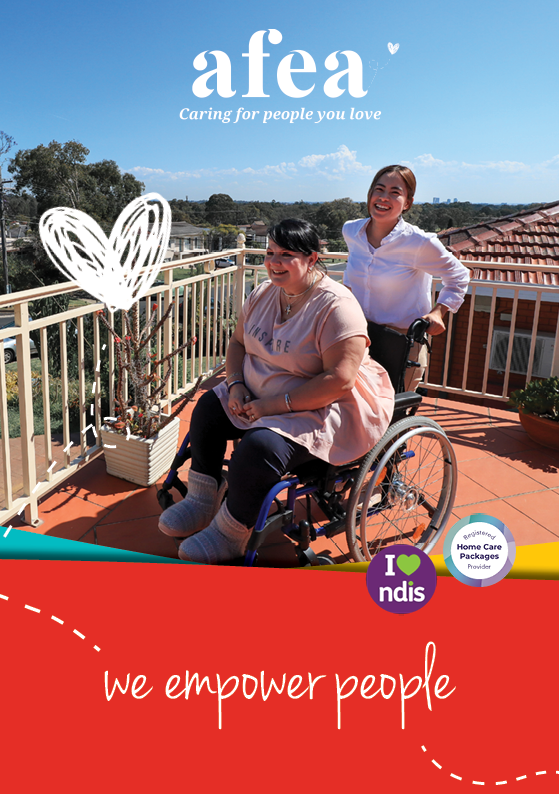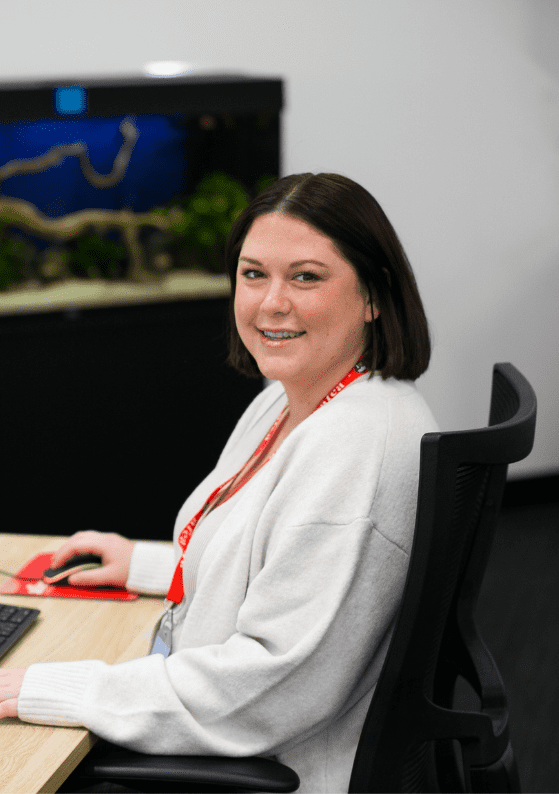“The most important thing with autism, you need to manage your stress so that it doesn’t overwrite the fun in life.”
Maria knows a thing or two about autism, and not only because she’s one of our Care Managers supporting NDIS participants. She was diagnosed with autism as an adult, at the age of 26.
Autism or autism spectrum disorder (ASD) is a condition that affects a person’s ability to interact with other people and the world around them. According to the latest available statistics, 1 in 150 Australians has been diagnosed with autism.
Maria is open about her autism diagnosis and sees it as an asset in her role. “Sharing that I have autism allows me to be closer to the client, especially when they are in the mindset of ‘No one understands’.”
Maria understands. Learn more about her in our interview:
My diagnosis came in 2022. I was 26 years old. I went for the assessment, as growing up I had a lot of difficulties at school. I used to find it difficult to be in classrooms, to be seated, to not fidget and walk around. Those were just a few signs that I had when I was younger.
As I grew older I was able to grow out of them. However, when I worked with children, and I started seeing autism and a few other diagnoses, I was able to see common, similar symptoms.
‘It was affirming’
In a way it was affirming that there’s a reason why I had difficulties. So I like that I knew now how I could find strategies to help myself. I read a lot of books about strategies, mitigation, and that helped me understand why certain things used to bother me, and it then helped me adapt.
I used art therapy and music therapy. I order canvases with numbers and that was just one way, when I had a really stressful day, I would just take it out and use it.
‘Know yourself in full’
As a Care Manager, every day is different. You can’t compare Monday to a Friday. I enjoy that I can make a very strong impact on someone’s life. I like going into the houses and meeting the clients and understanding them.
As an adult the diagnosis may seem detrimental if you’re going for employment opportunities. However, I highly encourage it, because your employer should be able to understand if you need adjustments made, and it is your right to know yourself in full.
What is autism spectrum disorder?
Autism spectrum disorder has been known by many names throughout history.
It was first described in the 1940s as a psychiatric disorder, a form of childhood schizophrenia characterised by “a detachment from reality”. Experts later considered it a developmental disorder distinct from schizophrenia. Under the term “pervasive developmental disorder”, they included other distinct conditions in addition to autism, including pervasive developmental disorder-not otherwise specified (PDD-NOS), Asperger’s and childhood disintegrative disorder (CDD).
Finally, in 2013, the fifth volume of the Diagnostic and Statistical Manual of Mental Disorders was the first to combine four independent diagnoses — autistic disorder, Asperger syndrome, PDD-NOS and CDD — into a single label of autism spectrum disorder or ASD.
The National Disability Insurance Agency or NDIA also uses the term autism spectrum disorder.
Why is it a spectrum?
The symptoms of autism fall on a continuum. This means no two people with autism spectrum disorder are the same – their abilities and the challenges they may face vary and can even change over time. Some experience severe disabilities that require lifelong support, while others can live independently with minimal support.
A supportive environment can make all the difference for people with ASD, allowing them to learn the life skills needed to live a full and meaningful life.
How does the NDIS support people with autism?
In Australia, people with autism spectrum disorder may receive assistance through mainstream health services. They can also access formal support through the National Disability Insurance Scheme or NDIS.
Applying to join the NDIS is the same for all conditions. The NDIS takes a lifetime approach. It is in place to help people with a disability gain access to daily support and build the skills necessary to live more independently in the future.
Setting goals is an important element of every NDIS plan, as it gives both you and the NDIA an idea of what actions to take in order to improve your future. Before applying for an NDIS plan, think about what you want to achieve using your funding.
The NDIS offers various support services that may help people with autism, such as:
- Support for daily personal activities
- Specialist support such as speech therapy or occupational therapy
- Assistance with social and community participation
- Transportation to enable participation in community activities
- Support coordination or connection to services
- Supports in order to pursue employment goals
- Assistive technology
- Home modifications
Support for Autism Spectrum Disorder from Afea
If you or someone you love have been diagnosed with autism spectrum disorder, we can help you in many ways:
- Our Carers can provide a variety of support, from daily personal care to assisting you 24/7 at our Supported Independent Living homes.
- Afea’s Support Coordination team can help you prepare for your NDIS planning meeting and connect you with providers who can give you support.
- With our Plan Management team, you can get the most out of your NDIS funding. They will take care of admin tasks so you can focus on doing the things you love.















